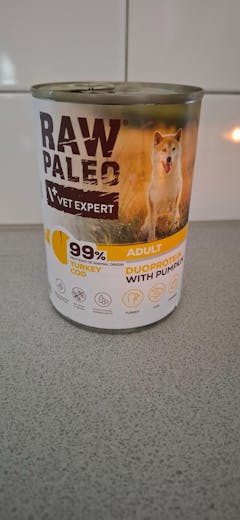Foder för Njursjukdom Hund: Stödja Njurfunktionen & Förbättra Livskvalitet
Njursjukdom är en vanlig och allvarlig åkomma hos hundar, särskilt bland äldre individer. Njurarna spelar en avgörande roll i hundens hälsa genom att filtrera blodet, reglera vätske- och elektrolytbalansen samt eliminera slaggprodukter. När njurarna inte fungerar optimalt ansamlas toxiner i kroppen, vilket kan leda till allvarliga hälsoproblem. På Zoostar.se förstår vi vikten av specialiserad vård och erbjuder ett noggrant utvalt sortiment av foder för njursjukdom hund. Dessa dieter är vetenskapligt formulerade för att stödja njurfunktionen, bromsa sjukdomens progression och förbättra din hunds livskvalitet.
Förstå Njursjukdom Hos Hundar
Njursjukdom kan vara akut (plötslig och potentiellt reversibel) eller kronisk (progressiv och irreversibel). Kronisk njursjukdom (KNS) är vanligast och innebär en gradvis förlust av njurfunktion över tid. Eftersom njurarna har en stor reservkapacitet, märks ofta inga symptom förrän en stor del av njurfunktionen gått förlorad.
**Vanliga symptom inkluderar:**
- Ökad törst och urinering
- Minskad aptit och viktminskning
- Kräkningar och illamående
- Slöhet och svaghet
- Dålig andedräkt (uremi)
- Muskelförlust
Diagnos ställs av veterinär genom blodprover (kreatinin, urea, SDMA, fosfor), urinprov, blodtrycksmätning och ultraljud. Tidig diagnos är avgörande för att kunna påbörja behandling och bromsa sjukdomsförloppet med hjälp av rätt foder för njursjukdom hund.
Hur Specialfoder Stödjer Njurarna
Foder för njursjukdom är specifikt utformade för att:
- **Reducerad Fosforhalt:** Detta är en av de viktigaste faktorerna. Höga fosfornivåer är skadliga för njurarna och bidrar till sjukdomens progression. Njurfoder har avsevärt lägre fosforhalt för att skydda njurarna.
- **Kontrollerad Proteinnivå med Hög Kvalitet:** Mängden protein är minskad för att minska produktionen av kvävehaltiga slaggprodukter som njurarna måste filtrera. Proteinerna är dock av mycket hög kvalitet för att säkerställa att hunden får tillräckligt med essentiella aminosyror utan onödig belastning.
- **Minskad Natriumhalt:** Hjälper till att kontrollera högt blodtryck och minska vätskeansamling (ödem, ascites), vilket är vanligt vid njursjukdom och ofta kopplat till hjärtsjukdom.
- **Högt Kaloriinnehåll:** Eftersom hundar med njursjukdom ofta har dålig aptit, är fodret energirikt (från fett och kolhydrater) för att säkerställa att de får tillräckligt med energi och förhindra viktminskning. Även viktkontroll för hundar kan vara relevant vid njursjukdom.
- **Tillsatta Omega-3 Fettsyror:** Har antiinflammatoriska egenskaper som kan gynna njurhälsan och blodflödet.
- **Berikat med B-vitaminer:** Kompenserar för förluster av vattenlösliga vitaminer som spolas ut på grund av ökad urinering.
- **pH-reglerande egenskaper:** Hjälper till att motverka metabolisk acidos, en vanlig komplikation vid njursjukdom.
Dessa veterinärfoder är designade för att ge maximalt stöd till njurfunktionen.
Viktiga Kompletterande Åtgärder
Utöver dieten är en omfattande behandlingsplan avgörande vid njursjukdom:
- **Vätsketerapi:** Det är viktigt att upprätthålla god hydrering. Många hundar med KNS behöver regelbundna subkutana vätskor hemma för att kompensera för den ökade vätskeförlusten via urinen och för att hjälpa njurarna att rensa ut slaggprodukter.
- **Läkemedel:** Veterinären kan ordinera:
- Fosfatbindare: För att kontrollera fosfornivåerna i blodet.
- Blodtryckssänkande medel: För att hantera hypertoni och skydda njurar och andra organ.
- Antiemetika: För att lindra illamående och kräkningar.
- Aptitstimulerande medel: För att uppmuntra hunden att äta.
- Läkemedel mot anemi: Om hunden utvecklar blodbrist.
- **Regelbunden Övervakning:** Täta veterinärbesök med blod- och urinprover är avgörande för att justera behandlingsplanen och övervaka sjukdomsförloppet.
- **Hygien & Komplikationer:** God tandhälsa är viktig, då dåliga tänder kan bidra till njursjukdom. Övervaka för andra komplikationer som kan vara relaterade till njursjukdomen, t.ex. diabetes, leversjukdom, mage- och tarmsjukdom, och urinvägsproblem (som kan orsaka njurskador). Även led- och rörelsehälsa, hudhälsa (allergier, se även hypoallergent foder hund) och foder för stress och nervositet hund kan vara aspekter att beakta.
Att hantera en hund med njursjukdom kräver engagemang och tålamod. Genom att kombinera ett anpassat foder för njursjukdom hund från Zoostar.se med noggrann veterinärvård, kan du hjälpa din hund att leva ett så bekvämt och glädjefullt liv som möjligt.
Vanliga frågor om Foder för Njursjukdom Hund
Här besvarar vi några av de mest frekventa frågorna vi får angående foder för hundar med njursjukdom.
Vad är njursjukdom hos hundar och vilka är de vanligaste orsakerna?
Njursjukdom hos hundar innebär att njurarna förlorar sin förmåga att filtrera blodet effektivt, reglera vätske- och elektrolytbalansen, producera hormoner och eliminera slaggprodukter från kroppen. Njursjukdom kan vara akut (plötslig debut) eller kronisk (långsamt progressiv). Kronisk njursjukdom (KNS) är vanligast och drabbar oftast äldre hundar. Njurarna har en stor reservkapacitet, vilket innebär att symptom ofta inte blir tydliga förrän en stor del av njurfunktionen har gått förlorad (ofta över 75%). Vanliga typer och orsaker till njursjukdom hos hundar: 1. Kronisk Njursjukdom (KNS): Den vanligaste formen, ofta progressiv och irreversibel. Orsaker kan vara: - Ålder: Njurfunktionen minskar naturligt med åldern. - Genetisk predisposition: Vissa raser är mer benägna att utveckla KNS (t.ex. Cocker Spaniel, Bullterrier, Schäfer). - Tandproblem: Bakterier från munhålan kan spridas via blodomloppet och skada njurarna (se även foder för tandhälsa hund). - Kroniska infektioner: T.ex. leptospiros eller pyelonefrit (njurbäckeninflammation). - Njursten eller urinvägshinder: Kan leda till hydronefros (utvidgade njurar) och skada njurvävnad (se även foder för urinvägsproblem hund). - Tumörer: I njurarna eller urinvägarna. - Autoimmuna sjukdomar: Där immunförsvaret angriper njurarna. - Långvarig användning av vissa läkemedel: T.ex. vissa NSAID-preparat. - Högt blodtryck (hypertension): Kan både vara en orsak till och en följd av njursjukdom. 2. Akut Njurskada (AKI): En plötslig och ofta allvarlig förlust av njurfunktion. Potentiellt reversibel om den behandlas snabbt. Orsaker kan vara: - Toxiner: Intag av giftiga ämnen (t.ex. glykol, vissa läkemedel, tungmetaller, vissa svampar). - Svåra infektioner: T.ex. leptospiros. - Kraftig uttorkning eller chock: Minskad blodtillförsel till njurarna. - Akut pankreatit: Svår inflammation i bukspottkörteln kan påverka njurarna. - Hjärtproblem: Sviktande hjärtfunktion kan påverka blodflödet till njurarna (se även foder för hjärtsjukdom hund). Symptom på njursjukdom hos hundar: Symptomen är ofta ospecifika i början och utvecklas gradvis. De vanligaste är: - Ökad törst (polydipsi): Ett tidigt och vanligt tecken. - Ökad urinering (polyuri): Urinen blir utspädd eftersom njurarna inte kan koncentrera den ordentligt. - Minskad aptit (anorexi) och viktminskning. - Kräkningar och illamående: Ansamling av toxiner i blodet (uremi) irriterar magsäcken. - Slöhet och svaghet. - Dålig andedräkt (ammoniaklukt): På grund av ansamling av slaggprodukter. - Munsår eller tandköttsinflammation. - Bleka slemhinnor: Anemi kan utvecklas eftersom njurarna producerar erytropoietin, ett hormon som stimulerar produktionen av röda blodkroppar. - Muskelförlust: På grund av proteinförlust och dålig metabolism. - Högt blodtryck: Kan orsaka blindhet eller neurologiska symptom. Diagnos av njursjukdom hos hundar: Diagnosen ställs av en veterinär genom en kombination av: - Klinisk undersökning: Bedömning av symptom och allmäntillstånd. - Blodprover: Förhöjda nivåer av kreatinin och urea (indikatorer på njurfunktion), förändrade fosfor- och kalciumnivåer, anemi, förändrade elektrolyter. SDMA är en tidig markör för njursjukdom. - Urinprov: Låg urindensitet (utspädd urin), protein i urinen, tecken på infektion. - Blodtrycksmätning: För att kontrollera hypertoni. - Ultraljud av njurarna: För att bedöma storlek, form och eventuella strukturella förändringar (t.ex. cystor, stenar, tumörer). - Urinkultur: Vid misstanke om infektion. Ett foder för njursjukdom hund är en hörnsten i behandlingen och är avgörande för att stödja njurfunktionen och bromsa sjukdomsförloppet. Det ingår i kategorin veterinärfoder och är speciellt anpassat för hundar med njurproblem.
Vilka näringsämnen är avgörande i foder för njursjukdom hund, och varför?
Ett anpassat foder för njursjukdom hund är den viktigaste komponenten i behandlingen av kronisk njursjukdom (KNS) hos hundar. Målet med dieten är att minska belastningen på de kvarvarande, fungerande njurcellerna, minska ansamlingen av giftiga slaggprodukter, kompensera för näringsförluster och bromsa sjukdomens progression. Fodrets sammansättning skiljer sig markant från ett vanligt hundfoder. Här är de viktigaste näringsämnena och varför de är avgörande: 1. Kontrollerad, Högkvalitativt Protein: - Varför: När protein bryts ner bildas urea och andra kvävehaltiga slaggprodukter som njurarna måste filtrera bort. Vid nedsatt njurfunktion ansamlas dessa ämnen och orsakar uremiska symptom. Att ge för mycket protein belastar njurarna i onödan. - Lösning: Njurfoder har en reducerad, men inte för låg, nivå av protein. Det är avgörande att proteinet är av mycket hög kvalitet (hög biologisk tillgänglighet) för att säkerställa att hunden får tillräckligt med essentiella aminosyror för att upprätthålla muskelmassa utan att producera för mycket avfallsprodukter. Detta hjälper till att minska uremiska symptom som illamående och aptitlöshet. 2. Låg Fosforhalt: - Varför: Fosfor är ett mineral som njurarna normalt reglerar. Vid njursjukdom kan njurarna inte utsöndra fosfor effektivt, vilket leder till förhöjda fosfornivåer i blodet (hyperfosfatemi). Detta kan i sin tur bidra till njurskador, påverka kalciumbalansen, orsaka sekundär hyperparatyreoidism (överproduktion av bisköldkörtelhormon) och bidra till att hunden mår dåligt. - Lösning: Njurfoder har en avsevärt reducerad fosforhalt. Detta är en av de allra viktigaste faktorerna för att bromsa sjukdomsförloppet och förlänga livslängden hos hundar med KNS. 3. Kontrollerad Natriumhalt: - Varför: För mycket natrium kan leda till högt blodtryck (hypertoni) och vätskeansamling (ödem, ascites), vilket är vanliga komplikationer vid njursjukdom och hjärtsjukdom. - Lösning: Natriumhalten är måttligt reducerad. Detta hjälper till att kontrollera blodtrycket och minska vätskeretention, vilket är särskilt viktigt om hunden även har hjärtsjukdom. 4. Ökad Kaloritäthet / Hög Energi från Fett och Kolhydrater: - Varför: Hundar med njursjukdom har ofta nedsatt aptit och kan förlora vikt. Eftersom proteinintaget är begränsat, måste energin komma från andra källor för att förhindra att kroppen bryter ner egna proteiner för energi. - Lösning: Njurfoder är energitäta, ofta med en högre andel fett och lättsmälta kolhydrater. Detta säkerställer att hunden får tillräckligt med kalorier trots eventuellt minskat foderintag. 5. Tillsatta Omega-3 Fettsyror (EPA/DHA): - Varför: Omega-3 fettsyror har antiinflammatoriska egenskaper och kan hjälpa till att minska inflammation i njurarna samt förbättra blodflödet till njurarna. - Lösning: Njurfoder är ofta berikade med fiskolja (källa till EPA och DHA). 6. Tillsatta B-vitaminer: - Varför: Eftersom njurhundar ofta dricker och urinerar mer, kan vattenlösliga vitaminer (som B-vitaminer) spolas ut ur kroppen i större utsträckning. Dessutom kan nedsatt aptit och illamående bidra till brister. - Lösning: Njurfoder är berikade med B-vitaminer för att kompensera för dessa förluster. 7. pH-reglering: - Varför: Njurarna är viktiga för att upprätthålla syra-basbalansen i kroppen. Vid njursvikt kan hunden utveckla metabolisk acidos (försurning). - Lösning: Njurfoder har ofta en alkaliserande effekt för att motverka acidos. Ett foder för njursjukdom hund är en del av veterinärfoder och bör alltid ordineras och följas upp av en veterinär. Att byta till en njurdiet är ett långsiktigt åtagande som kan ha en dramatisk positiv effekt på hundens hälsa och livslängd. På Zoostar.se hittar du kvalitetsfoder som stödjer din hund genom dess njursjukdom.
Hur hanterar man njursjukdom hos hundar utöver dieten?
Att hantera njursjukdom hos hundar, särskilt kronisk njursjukdom (KNS), är en livslång utmaning som kräver ett mångfacetterat tillvägagångssätt. Även om det är omöjligt att bota KNS, kan korrekt hantering bromsa sjukdomsförloppet, lindra symptom och förbättra hundens livskvalitet avsevärt. Ett anpassat foder för njursjukdom hund är hörnstenen i behandlingen, men det finns flera andra viktiga åtgärder som din veterinär kommer att rekommendera: 1. Vätsketerapi: - Varför: Hundar med njursjukdom urinerar mer för att försöka kompensera för njurarnas nedsatta koncentrationsförmåga, vilket lätt leder till uttorkning. - Lösning: Säkerställ att hunden alltid har tillgång till färskt vatten. I många fall är regelbunden subkutan (under huden) vätsketillförsel hemma en viktig del av behandlingen för att hålla hunden hydrerad och hjälpa njurarna att spola ut slaggprodukter. Vid akuta kriser kan intravenös vätsketerapi hos veterinären vara nödvändig. 2. Läkemedel för att kontrollera Fosfor och Kalcium: - Varför: Förhöjda fosfornivåer är skadliga för njurarna och orsakar obehag. - Lösning: Fosfatbindare: Läkemedel som binder fosfor i tarmen så att det inte absorberas. Ges tillsammans med måltider. Kalcitriol (aktivt D-vitamin): Kan ges för att reglera kalcium- och fosforbalansen och hämma bisköldkörtelhormonets överproduktion, men måste övervakas noga. 3. Läkemedel för att kontrollera Blodtryck (Hypertoni): - Varför: Högt blodtryck är vanligt vid njursjukdom och kan skada njurarna ytterligare samt andra organ som ögon och hjärna. - Lösning: Blodtryckssänkande läkemedel (t.ex. ACE-hämmare eller kalciumkanalblockerare). Regelbunden blodtrycksmätning är avgörande. 4. Läkemedel för att kontrollera Illamående och Kräkningar: - Varför: Ansamling av slaggprodukter (uremi) kan orsaka illamående, kräkningar och aptitlöshet. - Lösning: Antiemetika (t.ex. maropitant, ondansetron) och magskyddande medel (t.ex. famotidin, omeprazol). 5. Läkemedel för att stimulera Aptiten: - Varför: Nedsatt aptit är ett vanligt och allvarligt problem vid njursjukdom. - Lösning: Aptitstimulerande medel (t.ex. mirtazapin, capromorelin). 6. Läkemedel för att behandla Anemi: - Varför: Njurarna producerar hormonet erytropoietin, som stimulerar produktionen av röda blodkroppar. Vid njursvikt kan brist på detta hormon leda till anemi (blodbrist). - Lösning: Rekombinant humant erytropoietin (rHuEPO) eller darbepoietin kan användas, men med risk för biverkningar. Järntillskott kan också behövas. 7. Kompletterande kosttillskott (alltid i samråd med veterinär): - Omega-3 fettsyror: Fortsätter att vara viktiga för sina antiinflammatoriska effekter. - B-vitaminkomplex: För att kompensera för ökade urinutsöndringar. - Antioxidanter: För att minska oxidativ stress. 8. Regelbunden Uppföljning: - Tät övervakning: Blodprover (kreatinin, urea, SDMA, fosfor, kalcium, elektrolyter, blodvärden), urinprover (urindensitet, protein/kreatinin-kvot, urinkultur) och blodtrycksmätningar bör utföras regelbundet, ofta var 1-3 månad, beroende på sjukdomsstadium. 9. Andra relaterade hälsoproblem: Veterinären kommer också att övervaka för andra relaterade hälsoproblem. Njursjukdomar kan påverka eller påverkas av bland annat diabetes, leversjukdom, mage- och tarmsjukdom, urinvägsproblem (kan orsaka njurskador), hjärtsjukdom (kopplad till vätske- och blodtrycksbalans), samt viktkontroll för hundar (viktminskning är vanligt). Även led- och rörelsehälsa, hudhälsa, hypoallergent foder hund, foder för stress och nervositet hund, och foder för tandhälsa hund kan vara relevanta. Att leva med en hund med njursjukdom kräver engagemang och tålamod. Genom att noga följa veterinärens behandlingsplan och ett anpassat foder för njursjukdom hund från Zoostar.se kan du hjälpa din hund att leva ett så bekvämt och lyckligt liv som möjligt, trots sin sjukdom.
Foder för Njursjukdom hos Hund – Vanliga Frågor & Svar
Varför kräver hundar med njursjukdom ett specialfoder och vad händer om man fortsätter med vanligt foder?
Njurfoder används när njurarna har nedsatt filtreringsförmåga, vilket innebär att kroppen inte kan göra sig av med slaggprodukter lika effektivt som tidigare. Vanligt foder innehåller högre proteinnivåer och fosforhalt som ökar belastningen på njurarna och kan leda till snabbare sjukdomsprogression.
Ett njuranpassat foder har reducerat men högkvalitativt protein, begränsad mängd fosfor och kontrollerade mineralnivåer för att minska njurpåverkan. Samtidigt tillförs omega-3 (EPA/DHA) som kan bromsa vävnadsnedbrytning och stödja blodflödet i njuren.
Om man fortsätter med traditionellt foder riskerar hunden att få ökade ureanivåer i blodet, sämre aptit, illamående och kortare överlevnadstid. Därför är rätt diet en av de viktigaste delarna i behandlingen av kronisk njursjukdom.
Vilka symtom tyder på att en hund kan behöva njurfoder?
Tecken kan utvecklas långsamt och feltolkas som normalt åldrande. Vanliga symtom är:
• ökad törst och urinering
• matvägran eller aptitväxlingar
• dålig andedräkt (ureadoft)
• viktnedgång och muskelförlust
• trötthet, svaghet eller låg aktivitet
• mörk/brun urin eller proteinuri
• kräkning eller diarré i senare skede
Om symtomen kvarstår längre än några dagar eller följs av avmagring bör blodprov (urea, kreatinin, SDMA) tas. Rätt foder kan inte bota sjukdomen – men kan bromsa utvecklingen markant och förbättra livskvaliteten.
Varför är fosforreducerat foder så avgörande vid kronisk njursvikt?
Nedsatta njurar filtrerar fosfor långsammare, vilket leder till att nivåerna stiger i blodet. Förhöjt fosfor stimulerar paratyreoideakörteln (PTH), vilket bryter ned skelett och mjukvävnad över tid. Detta är en av de främsta orsakerna till att CKD (kronisk njursjukdom) försämras progressivt.
Njurfoder har därför lågt och noggrant reglerat fosforinnehåll, samtidigt som kalcium- och mineralbalansen justeras för att motverka sekundär hyperparatyreoidism. Detta är en av de starkast studerade effekterna bakom förlängd överlevnad vid njursjukdom.
Hur snabbt märker man resultat av njurfoder, och när ska man följa upp?
Förbättring sker gradvis. Aptiten brukar stabiliseras inom 2–4 veckor, energinivån efter 4–8 veckor och blodvärden kan förbättras över 8–12 veckor. Detta är ett långsamt organ – därför kräver framsteg tålamod och konsekvens.
Veterinärer rekommenderar vanligen blodprovskontroller var 3–6 månad för att se hur värdena svarar. Om kreatinin och SDMA sjunker eller planar ut är fodret väl anpassat. Målet är inte att normalisera värden – utan att stabilisera kurvan och bromsa försämring.
Kan man blanda njurfoder med annat foder eller ge smakförstärkare?
Helst inte – åtminstone inte i början. För att uppnå klinisk effekt behöver hunden ofta äta njurfoder som exklusiv kost. Blandning med vanligt foder kan höja proteinnivå och fosfor, vilket direkt motverkar syftet med dieten.
Om smaken behöver ökas kan man toppa med njuranpassat våtfoder från samma serie eller använda lågfosforalternativ som godkänns av veterinär. Undvik snacks, tuggben och rester som innehåller proteinrika ingredienser – särskilt lever, blodmjöl, ost, benbuljong och rött kött.
Det är bättre att sakta vänja in hunden stegvis än att kompromissa med effekten.
Husdjursprodukter Online
Utforska fler populära hundkategorier
Här hittar du många av våra mest efterfrågade kategorier – från hundfoder och godis till tillbehör, vård och aktivering.
Ledande Fodertillverkare
Populära hundfodermärken
Här hittar du våra mest populära hundfoder – från spannmålsfritt till veterinärfoder. Klicka på ett varumärke för att se hela sortimentet.






